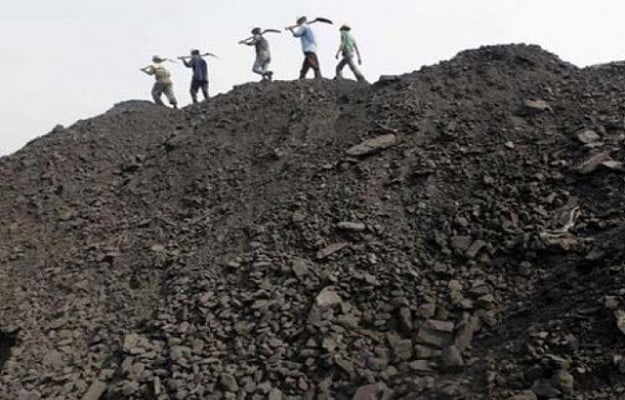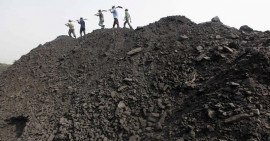
KARACHI: There was a general consensus among representatives from all provinces, at the second day of the 'National Consultation on the Mining Sector in Pakistan', that the laws and policies for mining in Pakistan exist but are never implemented.
On Friday, experts at the conference, organised by the Human Rights Commission of Pakistan (HRCP) at Beach Luxury Hotel, raised issues related to labour rights, environment, sustainable development, law and socio-political infrastructure in the country's mining sector.
Speaking on the functions of the mines and minerals department, mining engineer Haris Mir listed down the regulatory regime of the mining sector in Punjab, which includes the National Mineral Policy, 2013; Mines Act, 1923; Punjab Mining Concession Rules, 2002; Payment of Wages Act, 1936; Regulation of Mines and Oil Fields and Mineral Development (government control) Act, 1948; Coal Mines Ordinance, 1960 - based on fixation of rates of wages - ; Excise Duty on Minerals Act, 1967; West Pakistan Industrial and Commercial Employment Ordinance, 1968; The Punjab Mineral Development Corporation Act, 1975 and Employment of Children Act, 1991.
He explained that the laws and policies exist, but when it comes to their implementation, "we see zero progress."

Detailing the five stages of mining, Mir said the first one is 'prospecting', in which presence of minerals is located by using electromagnetic waves and other procedures. Then comes the exploration process, in which holes are bored and studies are conducted. In the development stage, he said, mining begins and then in the exploitation stage the investor starts getting results in the form of extracted resources.
The last stage is that of reclamation, which, according to him, is almost nonexistent in Pakistan. "Once the mine is closed, what's going to happen to that piece of land where the mining took place needs to be addressed," he said.
Talking about the safety of miners, he pointed out that there is no documentation on how accidents in mines occur and thus all the blame is put on the deceased. The compensation, according to him, is paid by the employer to the dependents of the deceased and the amount has been enhanced from Rs0.2 million to Rs0.4 million per deceased. The Punjab government, he added, pays Rs0.5 million from the Workers Welfare Fund to the legal heirs of the deceased in each case as well.
Speaking on environment issues, he said that the mining sector lacks basic rules related to environmental protection, which, if implemented, may help monitor, evaluate, facilitate and recommend various measures that need to be taken to save our environment from the detrimental effects of mining.
Environmental protection rules and regulation have not been fully understood and implemented by the government, he claimed, pointing out that the government considers it [environment protection] a luxury rather than a necessity.
According to Pakistan Mine Owners Association of Punjab chairman Khalid Pervaiz, the highest number of fatal accidents (27) in Punjab in the last five years occurred in Sargodha in 2015. The total number of mining accidents in the entire province in the last five years was 294, he informed further.
Pervaiz blamed human negligence, non-adherence to safety laws, bad practices and poor choice of appointments of persons as some of the reasons behind the accidents.
Speaking on the situation in Balochistan, Pakistan Central Mine Labour Federation's information secretary, Abdul Hakeem Khan, said the coal mines in the province are the world's deadliest, as they claim several workers' lives every year due to the absence of regulatory framework and safety gear.
On March 20, 2011, he said Pakistan's worst mining disaster took place after a gas explosion in the Sorrange coalmine - around 1,200 metres underground - in which 43 workers were instantly killed. The mine was operated by an unregistered contractor.
The mines in Balochistan, he pointed out, are owned by the Pakistan Mineral Development Corporation (PMDC), a subsidiary of the Ministry of Petroleum and Natural Resources. Still, he said, there is no proper check and balance system regarding mines in the province. The Reko Diq mine in Balochistan has a gross value of $500 billion, according to advocate Azam Jan Zarung. He claimed that 29 million tons of copper and 45 million ounces of gold are present at the Reko Diq mine but cannot be extracted as the government is involved in a dispute with the mining company in an international court.
Published in The Express Tribune, October 1st, 2016.





























































COMMENTS
Comments are moderated and generally will be posted if they are on-topic and not abusive.
For more information, please see our Comments FAQ